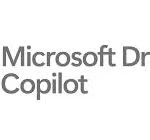The National Eligibility-cum-Entrance Test for Undergraduate (NEET-UG), one of India’s most competitive examinations for medical aspirants, is likely to adopt a computer-based testing (CBT) mode starting next year. This significant change comes in response to recommendations from the Radhakrishnan Committee, formed after concerns about examination security and transparency.
According to a Times of India report, Union Education Minister Dharmendra Pradhan confirmed ongoing consultations with the Ministry of Health, the National Testing Agency (NTA), and the committee chaired by former Indian Space Research Organisation (ISRO) Chief K. Radhakrishnan. The NTA, India’s central testing agency, will lead the transition to ensure a seamless shift to digital examination methods.
Radhakrishnan Committee’s Recommendations
In light of past issues, including paper leaks, the Radhakrishnan Committee proposed a phased approach to transitioning NEET-UG to a computer-based format. Among its recommendations were:
- Phased Implementation: Gradual adoption of the CBT format to ensure all stakeholders, including students and examination centers, can adapt effectively.
- Hybrid Model: Digital transmission of question papers to exam centers while allowing responses to be recorded on paper. This hybrid approach aims to minimize risks associated with the physical handling of question papers.
- Enhanced Security: Introducing these changes to reduce vulnerabilities at various stages, including printing, storage, and transportation of question papers.
Government’s Response
Minister Dharmendra Pradhan emphasized that the NTA is actively working to implement these recommendations. “We have started implementing the committee’s report. A monitoring group has been set up to provide continuous oversight and guidance to the NTA. This third-party vigil will help ensure transparency and accountability,” he stated.
The minister also noted that moving to CBT aligns with global best practices, enhancing both the efficiency and integrity of the examination process.
Implications for Students
The shift to computer-based testing marks a major transition for millions of students preparing for NEET-UG. While CBT offers advantages such as enhanced security and quicker result processing, it also requires students, particularly those in rural areas, to become familiar with digital test-taking formats. Training sessions, mock exams, and awareness campaigns are expected to be rolled out to ease the transition.
With NEET-UG’s shift to CBT, India continues to modernize its examination infrastructure, aiming to make the process fairer and more robust. Students, parents, and educational institutions will closely monitor how this transition unfolds in the coming months.











